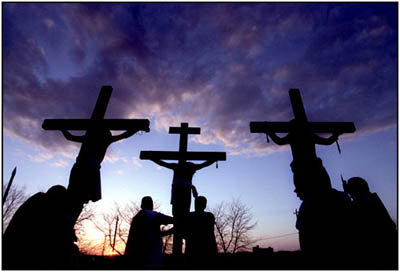by Father Robert Barron
|
When reading about the Cleansing of the Temple, we might assume this was the first time in Jewish history that the Temple had been defiled and needed fixing. But that isn’t the case. In the second book of Chronicles we read, “…the princes of Judah, the priests, and the people added infidelity to infidelity, practicing all the abominations of the nations and polluting the Lord’s temple.”
|







